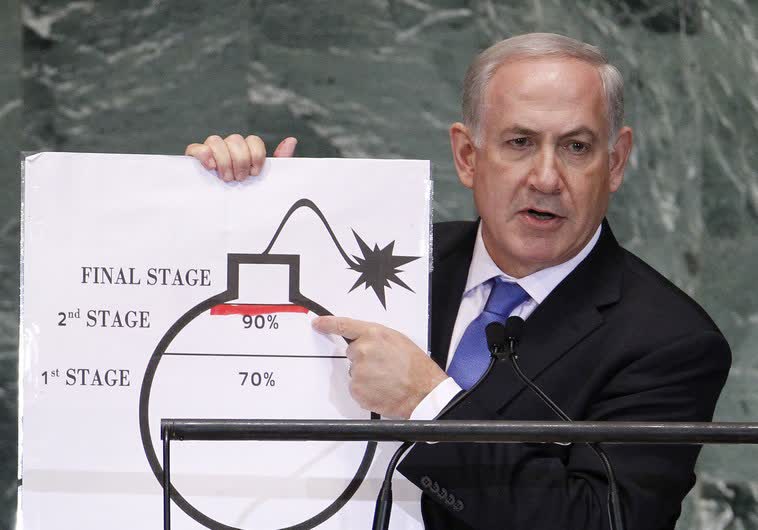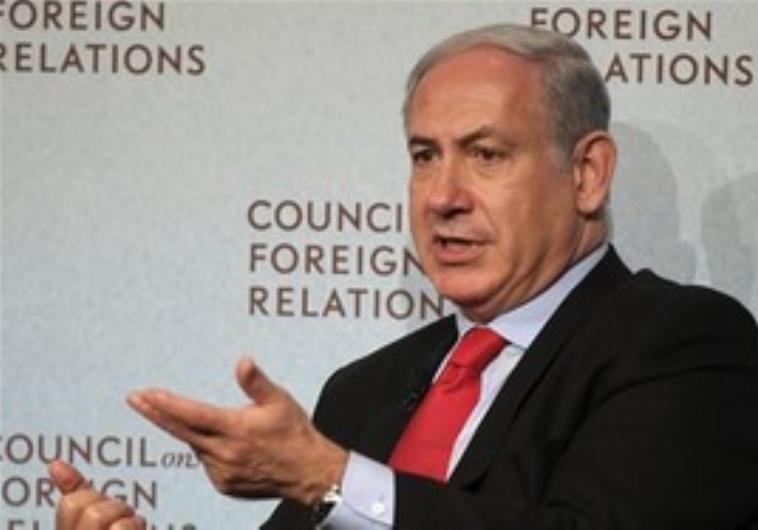Gershon Baskin senses that The Israeli leadership is putting the destruction of Hamas ahead of protecting innocents – including Israel’s own.
Rachel Goldberg, the mother of Hersh Goldberg-Polin, wears a handwritten number on a label stuck onto her shirt. Today, Friday January 26, it will be “112”. That is the number of days her 23-year-old son, Hersh, has been in captivity in Gaza, held by Hamas.
Unlike most of the 136 Israeli hostages being held by Hamas, there is a video of Hersh being abducted. Most shocking in this video is that one of Hersh’s arms was blown off, apparently by a grenade. Reportedly, only 95 of the 136 hostages are still alive. No one knows if Hersh is among the living or those who have been killed by Hamas or Israeli bombs, or whether he perhaps died from his wounds. What is clear is that every day the hostages remain in captivity in Gaza is a great risk to their lives.
In November, a negotiated deal between Israel and Hamas, facilitated by Qatar, Egypt and the US, led to the freeing of 110 hostages, not all of them Israelis. Israel released three Palestinian prisoners for each hostage released. This was the “low-hanging fruit”: Hamas released women and children and foreign hostages, Israel released women and teen-age prisoners.
Of the prisoners released, none were from Gaza, none were senior people in Hamas and none had killed Israelis. The deal continued beyond the initial agreement of 50 hostages, as Israel agreed to extend the pause in fighting and Hamas agreed to released additional women and children.
The breakdown of the deal occurred as Hamas released another list of hostages it was prepared to set free, but one that included elderly men and dead bodies. Israel asserted there were still 19 young women between the ages of 20 and 30 that should be released, and Hamas claimed they did not have them or know where they were. Israel then claimed Hamas deflected because these young women were probably violently sexually abused and did not want their stories to be told. If this is true, it is in direct violation of some of the clearest prohibitions in Islam and, as such, against what Hamas is supposed to believe in and adhere to. Instead of accepting the elderly men and dead bodies, Israel chose to view this as a breach in the agreement and renewed the war effort.
Since the beginning of the war on October 7 following the atrocities committed by Hamas in Israel, Israeli decision makers have claimed that the only way to bring the hostages home is through the military campaign in Gaza. They claimed the first deal was made as a result of the military campaign. From what I have been told by an Egyptian intelligence official, however, the campaign actually led to that deal being postponed by two weeks. The result of the war so far seems to have been the death of additional hostages.
For weeks, several senior Hamas officials, such as Ghazi Hamad and Osama Hamdan, made it clear that Hamas demanded the release of all Palestinian prisoners in Israel in exchange for the all of the hostages – what has become to be known as “all for all”. Since the massive damage of Israel’s war machine has become so evident in Gaza, with more than 25,000 killed two million people now homeless and much of the territory totally destroyed, Hamas has changed its preconditions for any hostage-prisoner exchange negotiations to include the full end of the war and total Israeli withdrawal from Gaza.
From my own 17 years of experience negotiating with Hamas, I have come to learn that the organisation says what it means and means what it says. For Israel, these demands are a non-starter. Since the initial round of releases, Israel seems intent on moving forward with its primary war goals of removing Hamas’s ability to control Gaza and destroying its military capabilities and infrastructure. The goal of bringing the hostages home seems to have taken a backseat to these objectives.
Behind the scenes, the US, Qatar and Egypt are trying to restart negotiations. The US approach, following a previous Egyptian initiative, is to be more comprehensive in linking together the end of the war, Israeli withdrawal, hostage and prisoner exchanges and a political process aimed at strengthening the Palestinian Authority (which would potentially take control of Gaza with a non-militarised Hamas participating), a temporary international force in Gaza and a US commitment to the two-states solution together with advancing the normalisation process between Saudi Arabia and Israel. According to media reports, the American plan would have three phases lasting 90 days, focus on ending the war and releasing all of the hostages. It does not mention the “all for all” deal – only the release of Palestinian prisoners. Israel has officially rejected this plan and Hamas has not responded.
Early last week, I made efforts to determine if Hamas might be willing to accept a deal that ends the war, sees an Israeli withdrawal to the international border and includes the exchange of all of the hostages – alive and dead – for all of the Palestinian prisoners. Rather than beginning negotiations on the hostages when the war was over, my proposal is for a packaged deal that includes “all for all” from the outset. I was informed by both Qatari and Egyptian contacts that a deal like that would be acceptable to Hamas. I met with representatives of the hostage families and was asked to bring to them the agreement of Hamas for that deal. I contacted several people in the Hamas leadership and others with contacts there.
Several days later, on January 17, I received the following message:
“Hi Gershon. I’ve just had a phone call from (former Hamas leader) Khalid Meshaal. Sitting next to him was Khalil Al Hayyah (the deputy of current Hamas leader Yahya Sinwar). He told me that the top leadership of the movement looked into what I sent them on your behalf. They say the following:
“1. Hamas is willing to exchange all hostages for all prisoners upon a complete end to the war. This position is not new. They have demanded it all the time but the Israeli side was only interested in short-term (day-long) truces. Hamas wants a complete end to the war.
“2. Hamas communicated to the mediators, the Qataris and the Egyptians, details about the technicalities involved. So, if the Israeli government is interested in a settlement, they should just express that willingness to the mediators.”
The representatives of the families asked me if I could get them to put something official in writing. I know from past attempts that this is very unlikely. Nonetheless, when I emphasised that the families of the hostages needed this in order to begin a public campaign in support of this deal, the same comments, attributed to a senior Hamas official, were published by the website Arabi21.
This deal is unacceptable to Israel. It is perceived as a surrender to Hamas that would have dire consequences for Israel, the West Bank and Gaza, and probably Jordan and Egypt as well. Hamas would remain in control of Gaza and would make every effort to rearm and continue to threaten Israel. Israel appears to believe that if its military can kill Hamas’s main leaders, the hostages would be set free. This is very unlikely; it is much more reasonable to imagine that the leadership and military command are surrounded by Israeli hostages as human shields.
At this stage, Hamas and Israel have no reason to trust each other. They have only their interests and the narrow ways in which to maximise them. Hamas believes it will win any war. Ghazi Hamad wrote the following to me on December 26, 2023: “You must believe that someday we will liberate our homeland. We are more moral than your state. The Palestinians will win because we are right and your country will lose because it represents the wrong way in the history.”
This kind of thinking is what makes Hamas intolerable to Israel. Let’s face it: there are no real guarantees that can be given to Hamas by anyone that would prevent Israel from renewing the war. There are also no guarantees that Israel would not re-arrest or kill any of the prisoners who would be released in a deal. But if this is true, why would Hamas ever agree to a deal to release the hostages? That is a question to which the only answers are educated guesses.
This is truly an impasse, and it shows the fundamental incompatibility in this situation of militarism and civilian life – whether it be that of Palestinian civilians or Israeli hostages.
Nonetheless, the most important thing, from an Israeli perspective, should be getting the hostages home. They are being betrayed by the state and the government has a moral duty to reverse course and prioritise getting them home. And so there are those, such as myself and many of the families of hostages, who maintain that the war effort can wait but the hostages cannot. The assertion is that first the hostages must be released and then if both sides want to continue their fighting, they can do that afterwards.
Now, 112 days after the war began with Hamas’s attack against Israel, there are more than 1,400 dead Israelis, more than 25,000 dead Palestinians in Gaza, about 200,000 Israelis internally displaced and two million Gazans homeless. There are 136 Israeli families suffering daily not knowing the fate of their loved ones and thousands of Palestinian families hoping that their loved ones might be freed from prison to go home.
For all of the seven million Israeli Jews, and all of the seven million Palestinian Arabs living on the same land between the River and the Sea, there is enormous suffering and trauma that will remain for generations. The most important question is whether there are people in the next generation of Israelis and Palestinians who will possess the wisdom to look forward to a new day when mutual acceptance and mutual recognition can launch a new genuine peace process.


